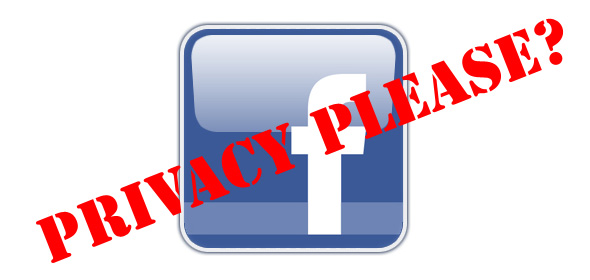Is there anything bigger than Facebook? For a long time, the answer has been no. But we might now be seeing a steady decline in Facebook’s numbers. We’ve watched companies like this come and go before (e.g. Friendster, MySpace, etc.), so maybe we should have foreseen this service fading into irrelevance.
At the root of Facebook’s problem is privacy, or a lack thereof. Facebook Founder and CEO Mark Zuckerberg made it abundantly clear that internet privacy is dead. In many ways, he feels entitled to your personal information. But according to Microsoft senior researcher Danah Boyd, people want to be able to use social media without sacrificing their privacy. Is that too much to ask? Shouldn’t law-abiding citizens have the right to maintain their privacy in all (or most) facets of life?
Facebook is starting to feel like more of a dictatorship than a democracy. How often do they tweak the service without giving their users any say or ability to reverse the changes? How often are we inundated by their targeted advertisements? And most importantly, how often do they collect our private information without our knowledge, only to sell it off to third parties?
According to a TRUSTe study, internet users in the U.S. want the ability to control what personal information of theirs is tracked and what online activities of theirs are monitored. And an Associated Press poll revealed that 40 percent of Facebook users, specifically, have little to no faith when it comes to the social media giant protecting their personal information. The poll also suggested that more than half of Facebook users believe the service is just the popular fad of our day, and will soon fall by the wayside for sites that take privacy into account such as Sgrouples, DuckDuckGo and Path.
Don’t agree? A recent ComScore study estimated that there has been about a five percent drop in unique U.S. visitors to Facebook in the past six months. Meanwhile, Facebook is also seeing a decline in its user base from countries like Great Britain and Australia (as much as 3.3 percent). The only rise in the company’s consumer base is in the developing world. But unfortunately, Facebook sees a lower monetization rate per user.
While these numbers don’t suggest that Facebook is going to implode overnight, they do indicate a worrisome decline in Facebook usage. And they also point to the privacy debate as Facebook’s biggest downfall.
Fortunately, help is on the way – for social media users, anyway. There are plenty of new, innovative social networking sites that abide by higher privacy standards.




Yup…. Bring on the Google+ 🙂
For those of us who have been predicting for a long time that G+ would take over 🙂
No Doubt!
Google + will do the same thing in the end – nothing is private online
as long as theres noobs to grannies and gramps around and if the G+ tech dont pull their thumbs out their asses and fix several huge issues with plus that Im not going to get into FB will be around for a good long while.
Ken Pretty No one ever said it was. But to confuse your users with annoying settings that reset every time they update, or focusing on the marketers, and not the actual users who are giving their data, just crosses the line.
Google+ is a loss for Google. They lose money running it. HOWEVER, they recognize the value of data, and subsidize G+ that way. Facebook can’t do that. It’s monetize your personal reactions or die.
Google+ doesn’t ask you to spend money to reach your family and friends when you post. #nuffsaid
Christopher Lira “several huge issues?” Lol. Either explain or they don’t exist.
So you who are commenting really think Google is better at protecting privacy? #dazed & #confused.
than Facebook? yes… they give you options that are nice and clear and not changing and hidden every month.
Nothing is really private on-line.. but yes.. Google gives you much better controls on privacy that Facebook in my opinion..
What was that about Google Plus again?